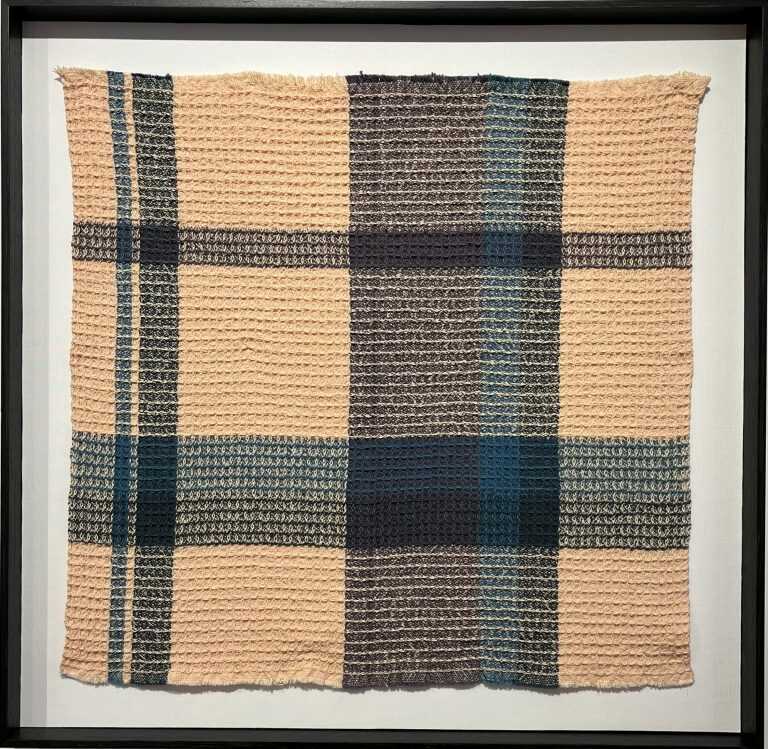Filter by Type
Filter by Category
Filter by Size
Filter by Year
Exhibitions

Bricks of Boston: Watercolors by Adam Van Doren
Press Release:
Childs Gallery is pleased to present Bricks of Boston: Watercolors by Adam Van Doren. The exhibition marks the artist and author's fourth solo show with Childs, and the first dedicated solely to images of 'The City on the Hill.' Van Doren has traversed Boston and beyond capturing images of the area's storied architecture: historic churches, government buildings, libraries, bridges, and more. A trained architect himself, Van Doren handles his subject matter with a master's eye but also that of an artist, sensitively capturing the spirit of some of Boston's most hallowed grounds.
Though based in New York, Van Doren travels frequently to paint – his finished works often serving as illustrations for books such as In the Founder's Footsteps: Landmarks of the American Revolution, The House Tells the Story: Homes of the American Presidents, and The Stones of Yale. Always attuned towards eye catching architecture, Van Doren has this time turned his brush specifically to Boston. The exhibition travels through the city and its surrounding areas - including images of Harvard University and Martha's Vineyard - to capture the unique character of quintessential New England architecture. As one of the United States' oldest cities, Boston's architecture encompasses several different periods, styles, and movements; Van Doren deftly paints many superb examples of these with his trademark expressionist flourish.
Bricks of Boston: Watercolors by Adam Van Doren will be on view in our upstairs gallery December 6, 2024, through February 9, 2025. A reception with the artist will be held Saturday, December 14, 2-4pm.
Included Works
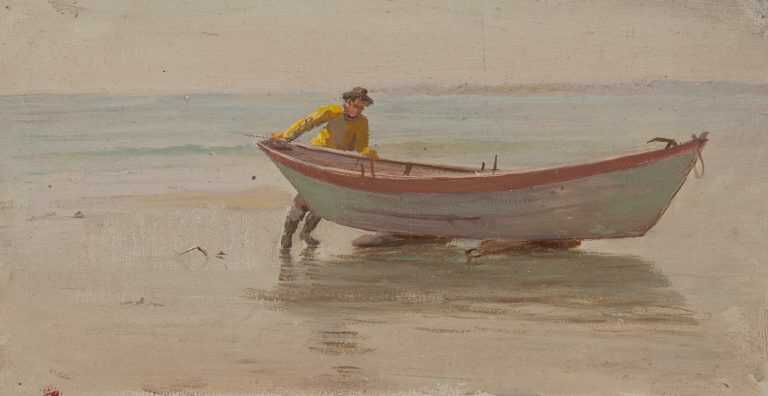
A Few of Our Favorite Things: Selections from Childs Gallery
Press Release:
This holiday season we've asked our staff to share their favorite works of art at Childs Gallery. The resulting exhibition, A Few of Our Favorite Things, highlights an eclectic selection of beloved items and forgotten treasures from the gallery's extensive inventory. Most of the staff are art collectors themselves, representing a wide range of personal tastes, expertise, and collecting interests. We are thrilled to share a few of our favorite things and hope that you might find a shared vision or favorite of your own to add to your collection.
Childs Gallery's storied inventory has been growing and evolving since the gallery was first established in 1937. We focus on fine American and European artwork, including paintings, drawings, watercolors, prints, and sculpture, from the Renaissance through Contemporary. Only a small fraction of this inventory is ever on view at one time in the gallery's exhibition spaces. As we move from one thematic or solo exhibition to the next, the full range of our offerings is often not immediately apparent to our clients. A Few of Our Favorite Things provides us with the perfect opportunity to open up our storerooms and display the exciting breadth of our artwork.
Our comprehensive holdings are particularly appealing to today's eclectic taste, as it's the collector's eye, not the historic period or medium, which makes for a cohesive and personalized collection. Our inventory features superb paintings and sculpture from the past 200 years with an emphasis on mid-20th century American Modernism, Abstract Expressionism, Boston Expressionism, Social and Magic Realism, women artists of the last century, queer artists, and other important genres and movements. While Childs is historically known for a broad collection of Marine Art and New England Impressionism, our current holdings also reflect the changing tastes of our clients, as well as new scholarship on artists and art historical periods. We seek to bridge the art of today with the great artists of previous centuries.
As the selections in A Few of Our Favorite Things are wide ranging, Childs Gallery staff has provided a few brief explanations for choosing certain artworks for inclusion. As you visit the gallery and peruse the exhibition, please engage with staff to find out more about the diverse pieces on view!
Richard Baiano, President and Owner: Ignaz Marcel Gaugengigl was known as The Meissonier Of Boston for his small cabinet pictures of exquisite detail celebrating genre scenes in the Colonial Revival Style. Small Audience, circa 1882, is a masterwork of his oeuvre showcasing his astonishing painting skills as costumes, fabrics, furniture and facial expressions pulsate to a larger than life scene in this small cabinet picture.
Alex Davis, Executive and Curatorial Assistant: Itamjie #2 shows Rodger Blum's simultaneous mastery of control and embrace of the emergent and improvisational. Keeping in mind his successful career as a dancer and choreographer it is no surprise that the colors and shapes move across the cloth, inviting joy and allowing us to delight in the abstract.
Julie Edwards, Director: Reading from Frost transports the viewer to an idyllic hillside overlooking a farm. A small group of men and women relax and recline, listening to the poems of Robert Frost. I am always intrigued by the narrative quality of Molly Luce's paintings. She is an expert at setting a scene and letting a story unfold.
Kathryn Fields, Director: Though known during his lifetime for work in fashion photography, George Platt Lynes is now best renowned for his stunning, intimate portraits of the male figure. [Chuck Howard Laying Down with Arrow] features Chuck Howard, Lynes' model, muse, and partner for several years in the late 1940s and early 50s. Howard's intense gaze in this photograph is mesmerizing, and the work as a whole offers a revealing look at the relationship between artist and model.
Yvan Rosa, Gallery Assistant: In Don Joint's St. George Slaying the Dragon I enjoy the playfulness of the artist's appropriation of art historical sources. The painting, at once modern, bold, and colorful, is nevertheless enriched by familiarity with Crivelli's original work. Joint's transformation, a kind of metonymic fragmentation of the original painting, to me seems to mirror the fragmentary and partial nature of memory itself, prompting the viewer to compare and reexamine both works.
Craig Tevolitz, Senior Vice President: Louis Fratino has been one of my favorite artists since I first discovered his work at a small show in Los Angeles years ago, and it's been thrilling to see his career take off. I'm drawn to his unique expressionist style, which feels both familiar and fresh—like a modern echo of German Expressionism and Picasso but told through the lens of a young gay man's experience.
Included Works
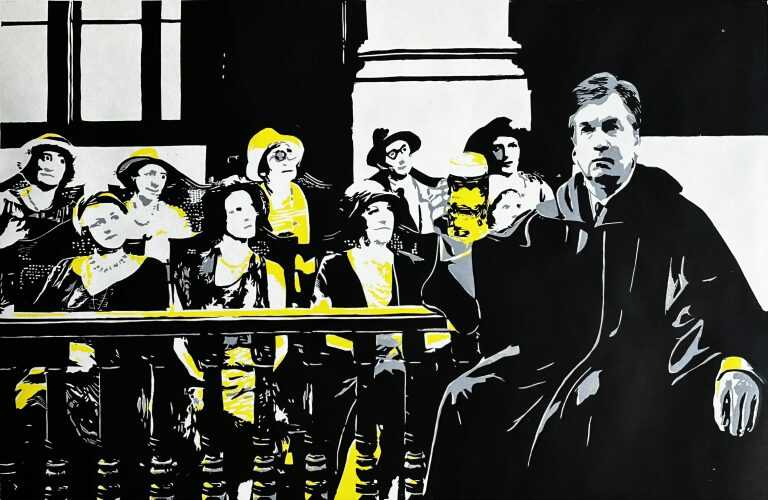
William Evertson: SCOTUS 6
Press Release:
William Evertson's recently completed series of woodblock prints, SCOTUS 6, takes aim at the six conservative members of the United States Supreme Court: John Roberts, Clarence Thomas, Samuel Alito, Neil Gorsuch, Brett Kavanaugh, and Amy Coney Barrett. The prints in SCOTUS 6 continue Evertson's interest in asserting political activism through visual media. Using collaged imagery, Evertson blends appropriated historical art with contemporary references, creating familiar yet irreverent scenes packed with biting socio-political commentary.
Humorous yet contemplative, the prints in SCOTUS 6 raise serious questions about the integrity of the Court's decisions and its drastic reshaping of settled law. Recent cases decided by the Court's conservative majority have altered long-standing precedents including overturning Roe v. Wade, granting presidential immunity, restricting the government's ability to regulate, and loosening environmental laws. Evertson's prints waggishly critique the Court, sounding the alarm at a critical moment for the nation's future.
Born in 1952, Evertson grew up with drills hiding under desks in preparation for nuclear war – a precursor to today's active shooter drills. While a twenty-something artist, America's landscape of cultural and political upheaval - including the assassinations of Martin Luther King, Jr. and Robert F. Kennedy, anti-war protests, Black Panthers, the Chicago Seven, and Kent State Massacre – helped foment Evertson's passion for activist art.
The SCOTUS 6 series began with a stand-alone color woodblock print of Justice Clarence Thomas and his wife Ginni dancing amid the crumbling ruins of the Supreme Court Building. The Thomas' pose is copied from an illustration by Scottish artist John Faed depicting a raucous witches' Sabbath. Evertson wanted to emphasize the politization of the Court and the outside influences exacerbating the Justices' preexisting prejudices. Prints of Chief Justice John Roberts amid pinball machines representing cases in which the Court dismantled long standing rights and Samuel Alito chased by a witch borrowed from an Albrecht Dürer engraving followed soon after, as the project morphed into a series of works underlining the hypocrisy of the conservative Judges. Evertson recently finished the series with images of Neil Gorsuch performing at a drag queen story hour, Brett Kavanaugh proudly holding a stein of beer in front of an empaneled jury of suffragettes, and Amy Coney Barrett as Botticelli's Aphrodite surrounded by red robed Handmaids.
The exhibition will also include two prints by Evertson not part of the SCOTUS 6 series, but thematically related. Evertson's much lauded Capitol Offense 1814-2021 (included in the collections of several major institutions) blends imagery from the January 6th insurrection with an 1814 British wood engraving celebrating the burning of Washington DC and the Capitol building. Ketanji on the High Wire features the newest Justice and first Black woman to serve on the Supreme Court, Ketanji Brown Jackson, delicately balancing on a tightrope over a swamp of waiting crocodiles.
William Evertson: SCOTUS 6 is a provocative body of work in which each piece serves as a mirror reflecting the complexities of power and corruption in today's political arena. The exhibition is on view in the Childs Gallery print department October 4 through December 1, 2024. An opening reception with the artist will be held Saturday, October 5, 2-4pm.
Included Works
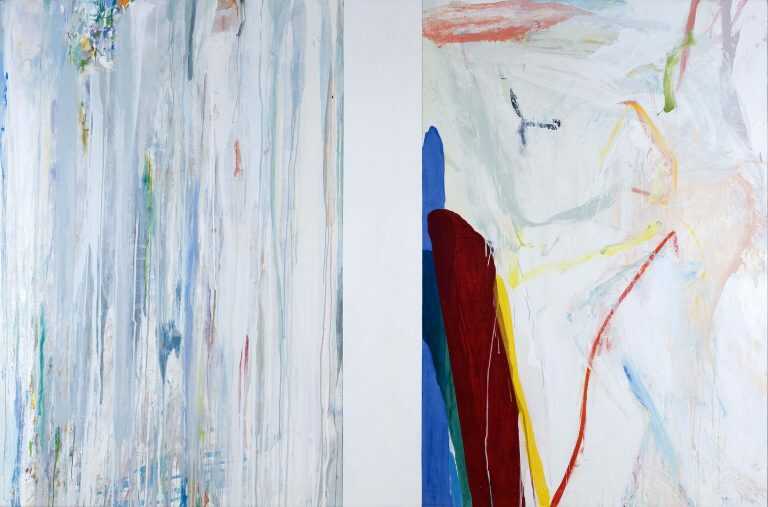
Robert S. Neuman: Under the Spanish Sun
Press Release:
American abstract artist Robert S. Neuman first visited Spain on a Guggenheim Fellowship in 1956. The experience was profound for Neuman, prompting major stylistic changes, as well as inspiring a second visit for his honeymoon in the late 1970s. Robert S. Neuman: Under the Spanish Sun presents the artist's work from both sojourns and explores his distillation of Spanish culture onto canvas. Surveying these two distinctive yet innately related periods within the artist's oeuvre, the exhibition affirms Neuman's strong connection to Iberia – his fascination with Spain's inherent mysticism and spirituality translating into abstracted planes of color, form, and light.
Neuman's first trip to Spain found the artist centered in Barcelona, the northeastern capital of the autonomous community of Catalonia. There, Neuman was deeply moved by the particular atmosphere of the city, noting specifically that Barcelona's light projected dazzling effects onto other colors, even seemingly dull neutrals: "The light around Barcelona was very interesting. Any little thing seems to be very chromatic. I started painting with…these beautiful grays. I hadn't painted with gray before because I thought it was a neutral color, but the atmosphere and the light were such that even grays seemed to contain a great deal of color."
In the Barcelona paintings Neuman strove to capture this unusual effect of light, as well as the spiritual essence he felt implicitly tied to the country through its history of religious pluralism. Catholicism, Judaism, and Islam all thrived at different points in Spanish history though they were frequently violently at odds with one another. These paintings, such as Muro Catalano and (Untitled) Flag exhibit hues which deftly mimic the early dawn and dusk hours of northern Spain. The colors are pleasing, yet the paintings themselves hold within a buzzing energy reverberating from frenetic planes of black, which bisect the canvases. These strokes of inky darkness are perhaps Neuman's allusions to the country's turbulent history of zealotry, war, and persecution, or maybe a suggestion of the mysticism ingrained in such religious fervor, or both. They also reflect the influence of prominent Spanish artists such as Albert Ràfols-Casamada, Antoni Tàpies, and J.J. Tharrats, whose studios Neuman frequented at the time and notably used 'violent colors and huge brush strokes' in their paintings.
Neuman returned to Spain in the late 1970s, this time settling in Granada, the capital of Andalusia, for his honeymoon. Here, again, Neuman was taken with the perceived effects of light, this time observing its play within the intricate architecture of the Alhambra, a 13th century Moorish palace complex and home to the Nasrid dynasty before its fall to the Catholic monarchs Ferdinand II and Isabela I in 1492. Neuman was entranced by the palatine structure's famous colonnades which through slender columns produced broken bands of light, creating a repeating pattern of views and interruptions on the Alhambra's time-worn walls. From these rays of light, lines of seeing and not seeing, Neuman developed a specific reoccurring visual language for his Alhambra series – striations of color paired with columnar forms of white representing the palaces walls and pillars and the effects of sunlight on such architecture.
Many of the Alhambra paintings were produced after the artist's return to the United States, with the elements of time and physical distance cultivating interesting effects in the resultant works. These later pieces, such as Alhambra Drawing, see Neuman venturing further into abstraction than previous iterations in the series. The columns begin to shift, tilting as if demonstrating the passage of sunlight through the day, and cut across riotous backgrounds of bursting strokes and splotches of color. Neuman would continue to work within the series for years after his return, using his paintings, drawings, and studies to further explore Spain's rich atmosphere and history through an increasingly abstracted Alhambra vernacular.
In Spain Neuman found inspiration to examine, breakdown, and rethink the major elements of his paintings: color, light, and composition. Though not a religious man himself, the artist's time in Barcelona and Granada was tantamount to an artistic spiritual experience, allowing Neuman to encapsulate the soul of a country through his abstracted vision of its distinctive culture and history.
Robert S. Neuman: Under the Spanish Sun is on view September 20 through November 17, 2024. An opening reception will be held Friday, September 20, 6-8pm.
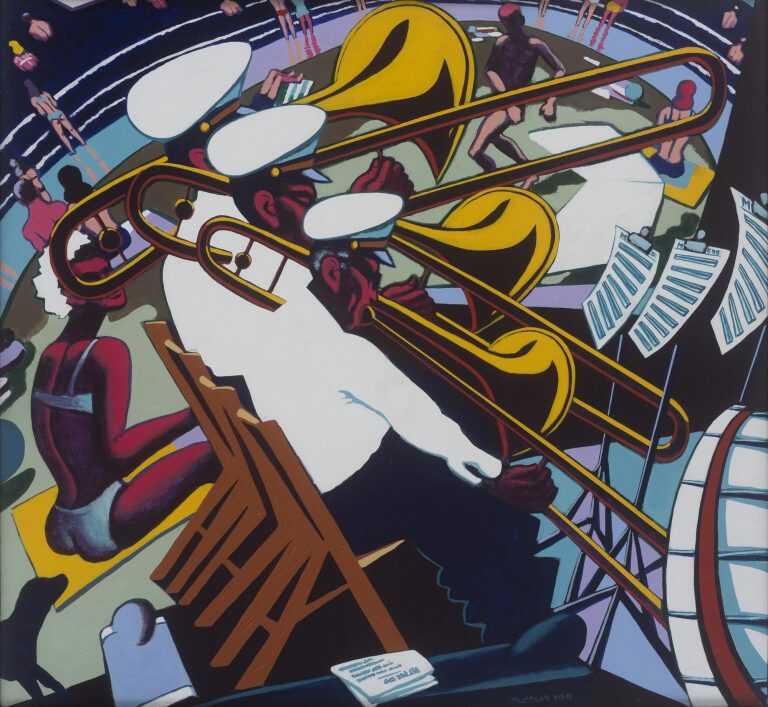
Musical Interlude: An Online Exhibition
Press Release:
Musical Interlude is an exhibition highlighting artwork inspired by music. The harmonies and rhythms found in music can spark creativity, evoke vivid imagery, and elicit emotions that visual artists can draw from in their work. Melodies become colors on canvas or shapes in clay. Enjoy a multi-sensory experience as you browse through the featured paintings, prints, and sculptures.
Included Works
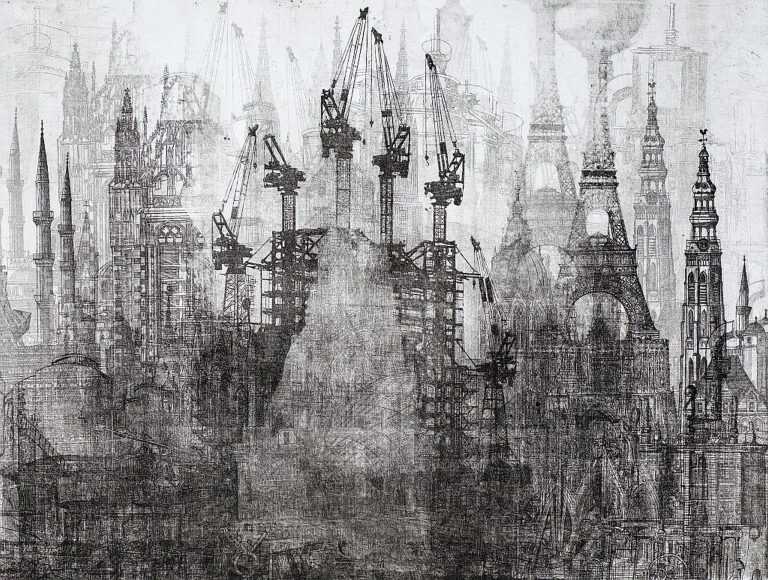
Surreal Spaces
Press Release:
Surreal Spaces explores fantastical interiors and exteriors dreamed up by some of today's most imaginative printmakers. Featuring works by artists including David Avery, Erik Desmazières, Annemarie Petri, and Gerard Trignac, among others, the exhibition presents images both dreamlike and nightmarish – bizarre visions drawing the eye and mind into intricately beautiful new worlds.
Surreal Spaces celebrates 'Art Fantastique,' a broad genre not restricted to any specific time, location, or school, but rather characterized by non-realistic subject matter portrayed in a representational and naturalistic style. Though loosely defined, it has been an integral part of many other art movements including Mannerism, Romanticism, Symbolism, Magic Realism, and, of course, Surrealism.
The works in Surreal Spaces depict futuristic cities, ancient ruins, peaceful gardens, and cluttered interiors with complex detailing and baroque flourishes that impart a sensibility, and even familiarity, into images of places and times that have never existed in our world but are rooted in our knowledge and understanding of it. Taking cues from history, mythology, science fiction, and fantasy, the works represent artistic worldbuilding at its best; each piece is a cosmos unto itself, a lived in reality of some other people or civilization. Highlights include Annemarie Petri's monoprint etchings of starkly ethereal cities that seem to exist between dimensions, fading in and out perception; Gerard Trignac's L'Embarquement pour Cythère, a dark and haunting play on Jean-Antoine Watteau's famous Rococo 'fête galante;' David Avery's The Anatomy of Melancholy, in which macabre marginalia explode across a windswept room; and Erik Desmazières' cerebral Passage du Caire, a twisted, serpentine reimagining of Paris' oldest covered arcade.
Surreal Spaces is on view in Childs Gallery's upstairs print department August 9 through September 29, 2024.
Included Works
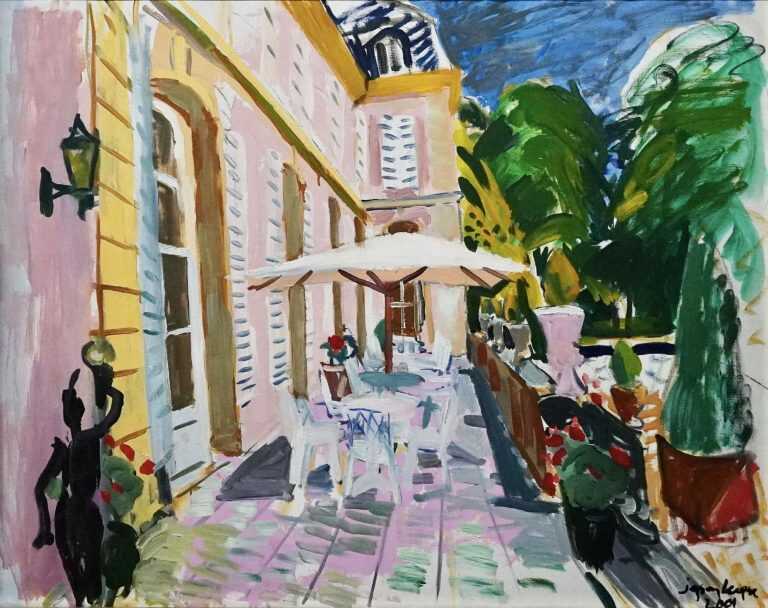
Jason Berger: American Fauve
Press Release:
Jason Berger: American Fauve traces the artistic lineage of Jason Berger (1924-2010), drawing connections between the Boston Expressionist painter and his Fauvist antecedents. Known for his exuberant landscapes and joyful outlook on life, Berger's use of vibrant, saturated colors and expressive brushwork place him firmly within the legacy of Fauvism.
Led by Henri Matisse (1869-1954) and André Derain (1880-1954), Fauvism was an early 20th Century art movement concerned with the expressive potency of color. Working together in the south of France in 1905, Matisse and Derain introduced highly saturated colors and bold, undisguised brushwork into their paintings, favoring simplification and abstraction over naturalistic representation. The paintings caused a sensation when they were exhibited at the Salon d'Automne in Paris later that year. Initially ridiculed for their bold coloration and seemingly wild paint application, art critic Louis Vauxcelles dubbed the group Les Fauves, or "the wild beasts".
Following his graduation from Boston's School of the Museum of Fine Arts in 1949, Berger was awarded the school's European Traveling Fellowship and departed for France. He eagerly absorbed the work of the Fauves and other French modernists; "It was a significant time to go to Europe since Bonnard, Matisse, Dufy, Picasso, and Braque were all still living there and showing their work." In 1952, after viewing an exhibition of Matisse's cut-outs at the Maison de la Pensée, Berger was fortunate enough to run into the aging artist at a nearby café.
By the early 1950s, Berger had thoroughly fallen under the influence of the Fauves. Gone was the dark, moody palette of Boston Expressionism, which he had previously embraced – and in its place, a riot of pure color. Paintings such as Hotel Lobby, Patzcuaro, 1972/74 bring to mind Matisse's Fauvist icon Open Window, Collioure, 1905. Both compositions are sited on the threshold, interior scenes unfolding upon views of the natural world. Like Matisse, Berger employs a maximum intensity of color, relying on broad areas of complementary hues to create contrast and spatial depth. Expressive color, line, and brushwork activate both compositions, drawing the viewer into the space. For Berger, just as Matisse, the open window or doorway became a central motif in the artist's oeuvre.
Jason Berger: American Fauve celebrates Berger's Fauvist palette, bringing together outstanding examples of the artist's landscapes and studio paintings. Fauvism offered Berger a visual language to express his unique joie de vivre, allowing his paintings to blossom with vibrant pigments and a sense of joyful spontaneity.
The exhibition is on view in our main gallery space through September 15, 2024.
Included Works
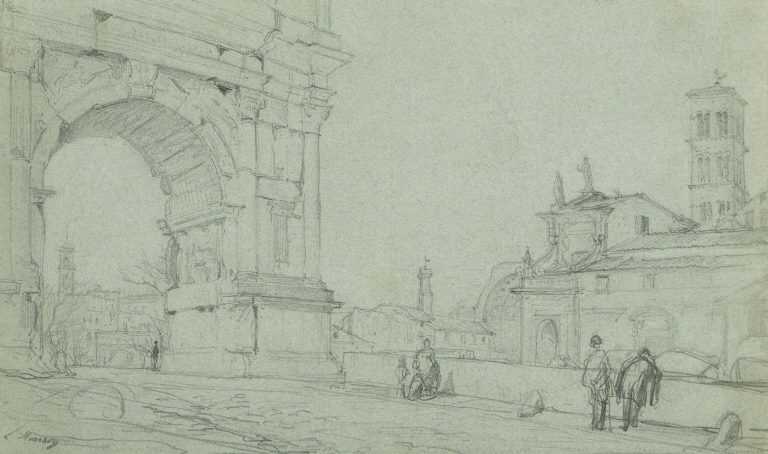
Jolis Dessins: 19th Century French Drawings – An Online Exhibition
Press Release:
19th-century France saw the art of drawing transformed. Though initially draftsmanship was taught as a means of artistic training, the medium was reinvented as an independent form of expression rife with potential for exploration in materials and subject matter. During this time, venues began to exhibit drawings with the same reverence as paintings and sculpture, and collecting these artworks became fashionable amongst both museums and private individuals.
Jolis Dessins presents a group of 19th century French drawings by both known and unknown artists, with subjects ranging from deftly rendered portraiture to architectural studies both real and fantastical. The exhibition displays the virtuosity of French artists experimenting with a medium in rebirth. Jolis Dessins is available to view online through July 31, 2024.
Included Works
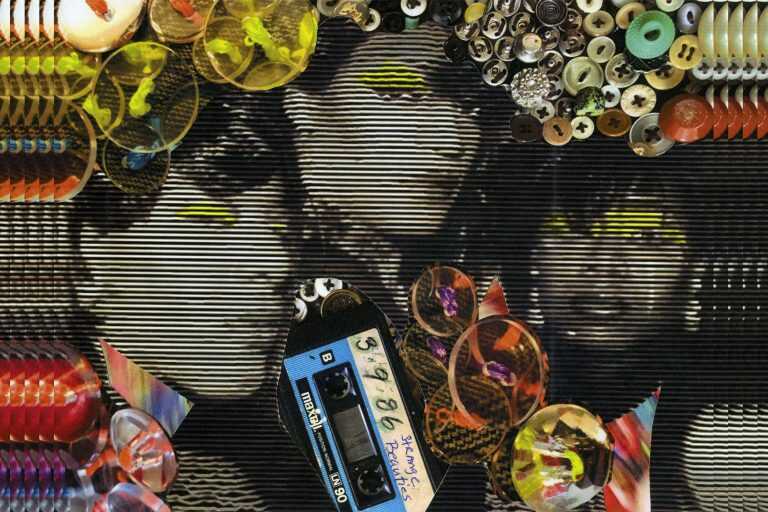
Beau McCall – REWIND: MEMORIES ON REPEAT
Press Release:
REWIND: MEMORIES ON REPEAT spotlights the Black LGBTQ+ experience in America through the collages of creative artist Beau McCall and archival material. The collages are drawn from McCall's debut artist's book, REWIND: MEMORIES ON REPEAT which honors the legacy of ten of McCall's deceased friends. Each collage is created by hand using McCall's personal archival photos and papers, along with images from his button-embellished artwork. Once completed the works are then scanned and printed on metal for luminosity. The collages capture the late 1970s to the mid-1990s, from Philadelphia to New York, during the LGBTQ+ rights movement, the height of disco music, and the AIDS crisis.
Additionally, McCall has included select collages from his series, "Diva Worship." These works transform photos from public archives to celebrate iconic divas who have inspired, empowered, and captivated McCall, his friends, and the LGBTQ+ community. Their inclusion speaks to the ways in which personal memories and historical moments–particularly within the LGBTQ+ community–are often tied to divas. Thus the "Diva Worship" collages provide another lens through which the Black LGBTQ+ experience can be viewed and interpreted.
Finally, select collages are paired with archival items which frame McCall's personal memories and experiences within historical and social contexts. This pairing draws a parallel between the personal narrative of McCall and his friends and the larger historical moments that impacted their lives. Collectively, McCall's collages and archival materials reflect the joys and struggles of the Black LGBTQ+ community and demonstrate how art and archives can be used as tools to better understand our lives, find connections between the past and present, and imagine a brighter future.
Beau McCall creates wearable and visual art by applying clothing buttons onto mostly upcycled fabrics, materials, and objects. His artworks, offering commentary on topics such as pop culture and social justice, have been included in exhibitions at The Museum at FIT (New York, NY); Nordstrom; the African American Museum in Philadelphia (Philadelphia, PA); Houston Museum of African American Culture (Houston, TX); Charles H. Wright Museum of African American History (Detroit, MI); Stax Museum of American Soul Music (Memphis, TN); Black Fashion Museum (New York, NY); the Langston Hughes House in partnership with the inaugural Columbia University Wallach Art Gallery Uptown triennial and StoryCorps (New York, NY); and Rush Arts Gallery (New York, NY). McCall's work is held in the permanent collection of public institutions and by private individuals, including the Museum of Arts and Design (New York, NY); Philadelphia Museum of Art (Philadelphia, PA); Victoria and Albert Museum (London, UK); The Museum at FIT (New York, NY); Schomburg Center for Research in Black Culture (New York, NY); Amistad Research Center (New Orleans, LA); The Museum of Modern Art Library (New York, NY); Leslie-Lohman Museum of Art (New York, NY); Stonewall National Museum, Archives & Library (Fort Lauderdale, FL); San Francisco Museum of Modern Art Library (San Francisco, CA); Cyndi Lauper's True Colors Residence; Debbie Harry of Blondie; Jeffrey Gibson; and Cristina Grajales. For more information on McCall, please visit www.BeauMcCall.com.
REWIND: MEMORIES ON REPEAT is curated by Souleo, who has been hailed as an "Icon of Harlem" (Ruth Millington, art historian and author of Muse) and "Harlem's Heart & Soul" (NY Daily News). An acclaimed creative, curator, impresario, consultant, and muse he seamlessly merges the worlds of art, fashion, literature, media, and music to document and amplify the stories of the emerging and underrepresented via exhibitions, events, and writing. Souleo has collaborated with noteworthy institutions and brands, including New York Public Library (New York, NY); Schomburg Center for Research in Black Culture (New York, NY); Brooklyn Public Library/Center for Brooklyn History (Brooklyn, NY); Museum of Arts and Design (New York, NY); Columbia University (New York, NY); Barnard College (New York, NY); Newark Museum of Art (Newark, NJ); Stax Museum of American Soul Music (Memphis, TN); Leslie-Lohman Museum of Art (New York, NY); Nordstrom; and AARP. Souleo's work has been widely covered in outlets including the Associated Press; NY Times; The New Yorker, New York Magazine/The Cut; ESSENCE; EBONY; and NBC. For more information on Souleo, please visit www.SouleoUniverse.com.
Please join us for a reception with Beau McCall and Souleo, Saturday, June 1, 4-6pm. The reception is presented in collaboration with The History Project, an independent community archive focused exclusively on documenting and preserving the history of New England's LGBTQ+ communities and sharing that history with LGBTQ+ individuals, organizations, allies, and the public.
Included Works
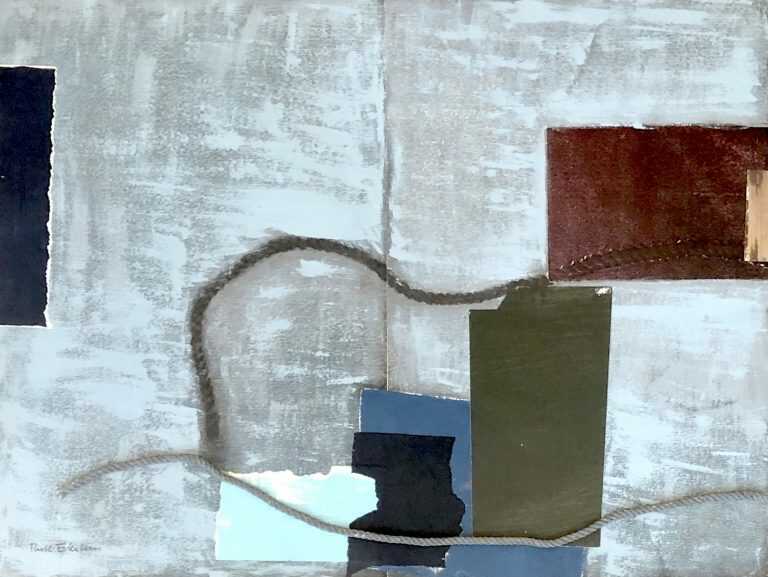
Ruth Eckstein: Collaged Elements
Press Release:
Abstract modernist Ruth Eckstein was renowned as a master of both painting and printmaking, and frequently pushed the boundaries of both through the incorporation of collaged elements: additions of paper cutouts, wooden pieces, rope strands, and other design embellishments. Ruth Eckstein: Collaged Elements considers these mixed media works throughout the many decades of Eckstein's career, highlighting the artist's adept hand at interweaving layers, texture, and color into deceptively minimalist artworks.
Of her work, Eckstein explained: "I do not like being confined to a single medium. I like the excitement that comes from switching modes. I like to 'walk' around an idea, deal with it in various ways." Eckstein thus enjoyed freely moving between various media and techniques, yet often threaded ideas together into series which stretched across painting, collagraphy, etching, and screen printing. Though Eckstein created prolifically within each of these media, her finished works were very rarely easily defined as one or the other. Rather, they were amalgamations of artistic techniques, connected through themes, and ornamented with the addition of collage.
Born in Nuremberg, Germany in 1916, Eckstein took an early interest in art after working in her father's fabric shop as a teenager. In 1934, she fled the Nazi regime for Paris, where she would live for next five years before finally emigrating to New York City in 1939. There, she found asylum within a burgeoning network of émigré artists living in political exile. Eckstein took painting classes at the Museum of Modern Art and studied under Stuart Davis at The New School for Social Research. With the encouragement of Harry Sternberg, her teacher at the Long Island North Shore Community Art Center, Eckstein enrolled at the Art Students League in New York, where she immersed herself in printmaking techniques as well as painting and drawing, studying with Sternberg, Julian Levi, and Vaclav Vytlacil. Later, intrigued by the woodcut method of printmaker Seong Moy, Eckstein studied with him at the Pratt Graphic Art Center, and also learned etching techniques with master printer Roberto De Lamonica.
Collaged Elements sees Eckstein's utilization of these various techniques and explores her evolution into mixing media to produce artwork that is bold in its presumed simplicity. Eckstein favored stark color combinations and pared-down compositions to achieve a tranquility of space that belies the labor inherent in each work. By layering flat planes of color and texture, Eckstein imbues depth into her paintings and prints, thoughtfully enhancing and developing the sense of space contained within each.
Eckstein's work is represented in over fifty prestigious public collections, including the Museum of Fine Arts, Boston; the Museum of Modern Art; the Guggenheim Museum; the Metropolitan Museum of Art; the Whitney Museum of American Art; the Bibliotheque Nationale, Paris; the National Museum of American Art; and the Harvard Art Museums.
Ruth Eckstein: Collaged Elements celebrates the artist's genre defying works, using collage to craft sculptural paintings and layered prints into compelling arrangements of dimensional abstraction. The exhibition is on view May 24 through July 21 with a reception Sunday afternoon, June 9, 2-4pm.

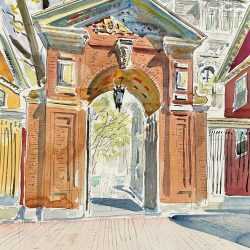
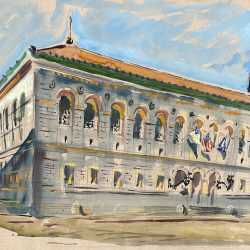
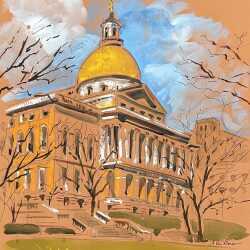
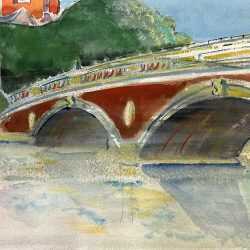
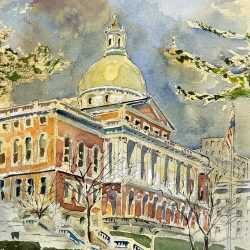
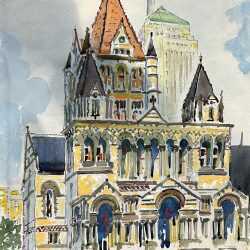
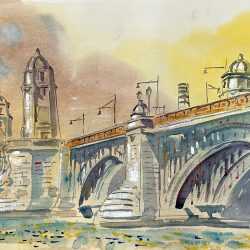
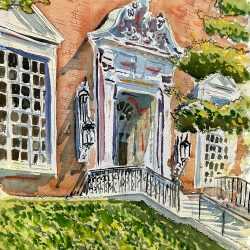
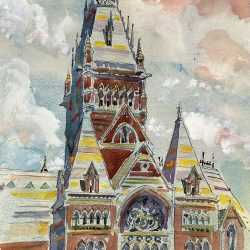
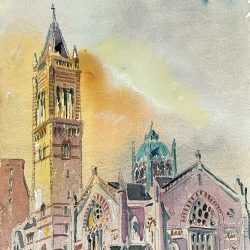
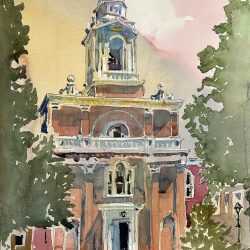
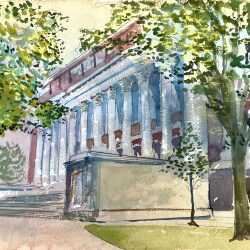
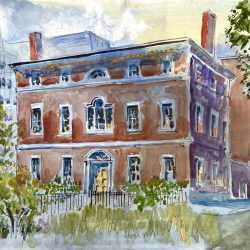
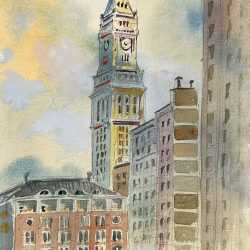
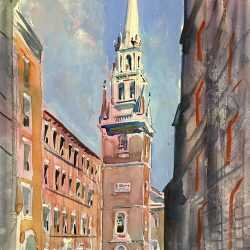
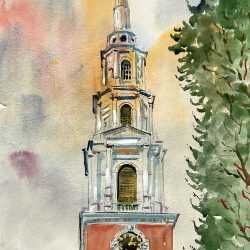
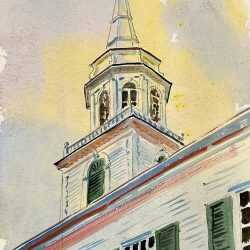
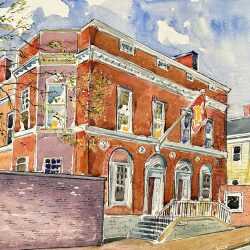
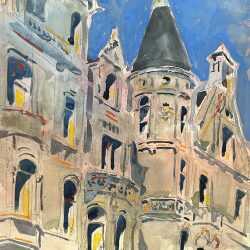
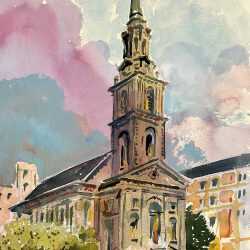
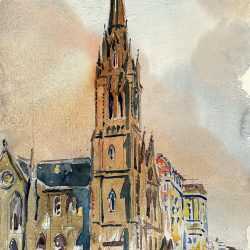
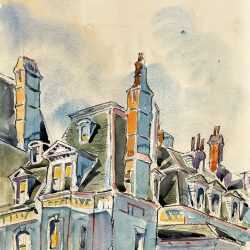
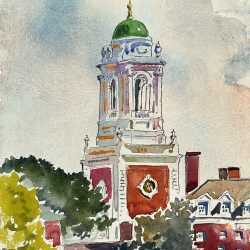
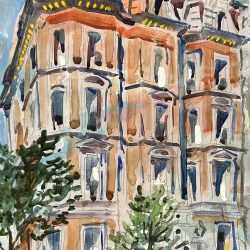
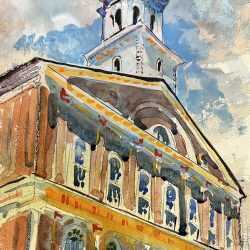
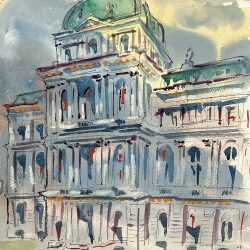
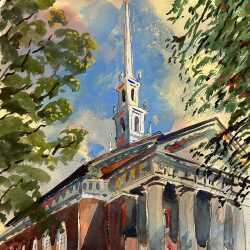
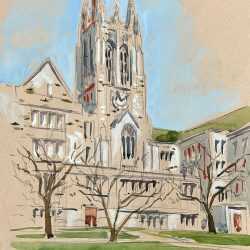
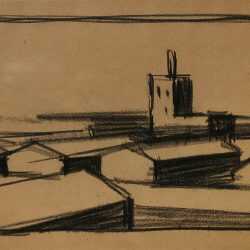
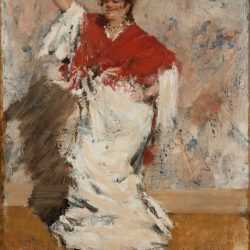
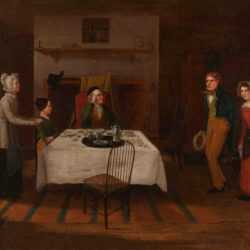
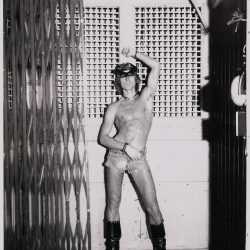
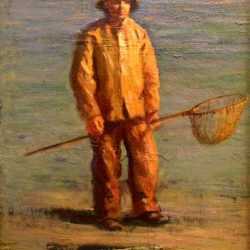


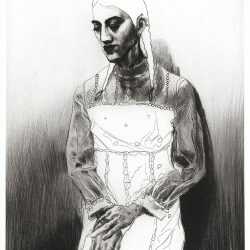
![Painting By William Partridge Burpee: [fisherman And Dory] At Childs Gallery](https://childsgallery.com/wp-content/uploads/william_partridge_burpee_fisherman_and_dory_cgl26343-27_childs_gallery-250x250.jpg)
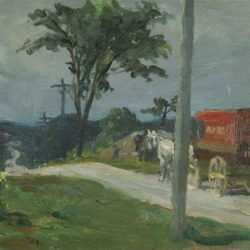
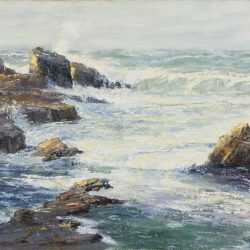
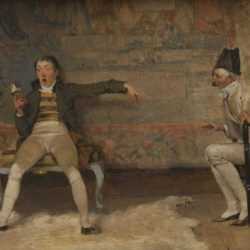
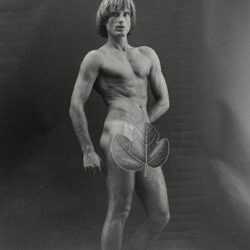
![Sculpture By Donald De Lue: [adam And] Eve At Childs Gallery](https://childsgallery.com/wp-content/uploads/donald_de_lue_adam_and_eve_86-62-15-07_childs_gallery-250x250.jpg)
![Sculpture By Donald De Lue: Adam [and Eve] At Childs Gallery](https://childsgallery.com/wp-content/uploads/donald_de_lue_adam_and_eve_86-62-14-07_childs_gallery-250x250.jpg)
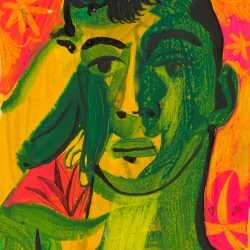
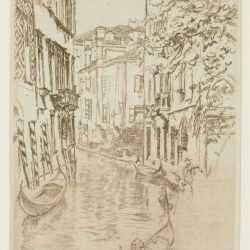
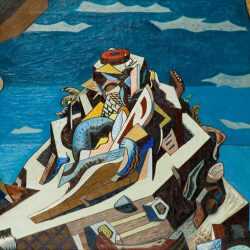
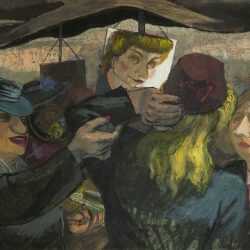
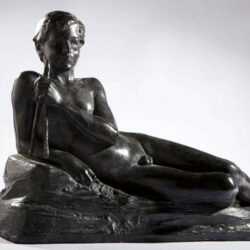
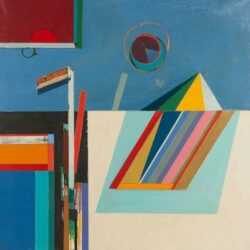
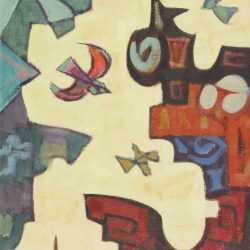
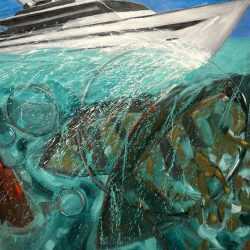
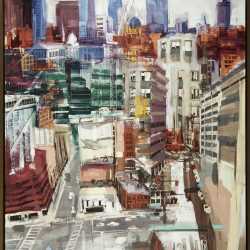
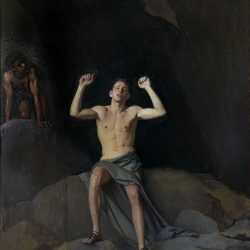
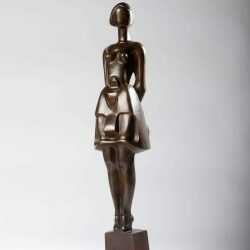

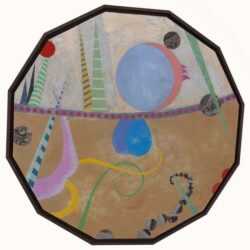
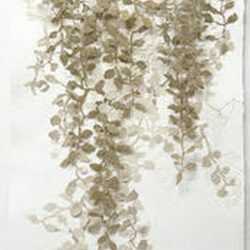
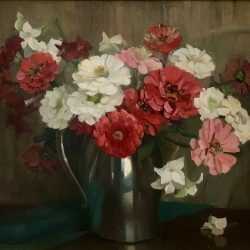
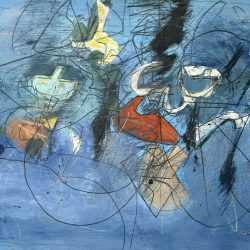
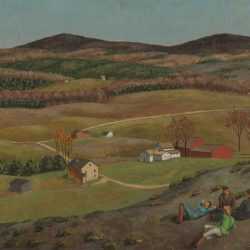
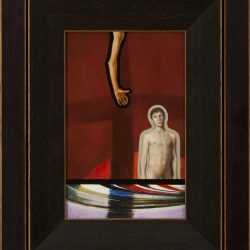
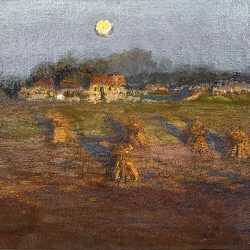
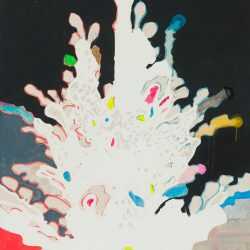
![Photograph by George Platt Lynes: [Chuck Howard Laying Down with Arrow], available at Childs Gallery, Boston](https://childsgallery.com/wp-content/uploads/george-platt-lynes_chuck-howard-laying-down-with-arrow_21-23-107_childs_gallery-250x250.jpg)
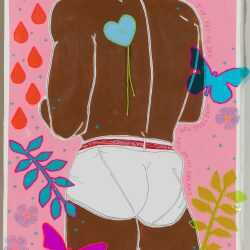
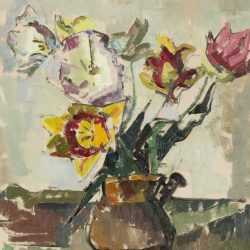
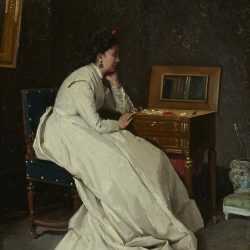
![Watercolor by Aiden Lassell Ripley: [Seated Woman], represented by Childs Gallery](https://childsgallery.com/wp-content/uploads/aiden_lassell_ripley__seated_woman__bb27279t_childs_gallery-250x250.jpg)
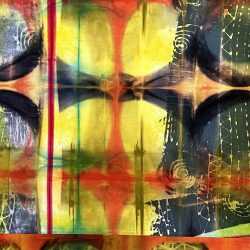
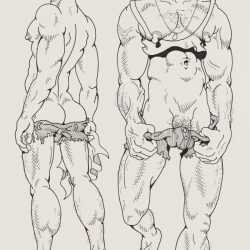
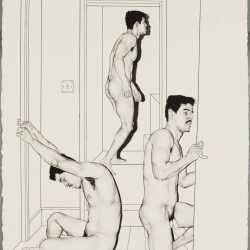
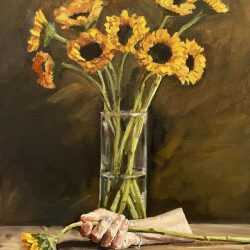
![Painting by Henry Rodman Kenyon: [Distant Landscape], available at Childs Gallery, Boston](https://childsgallery.com/wp-content/uploads/henry-rodman-kenyon_distant-landscape_childs_gallery-250x250.jpg)
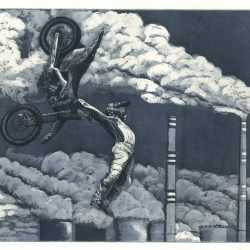
![Watercolor by Anthony Thieme: [Mediterranean Villa], available at Childs Gallery, Boston](https://childsgallery.com/wp-content/uploads/anthony-thieme_mediterranean-villa_23-13-01_childs_gallery-250x250.jpg)
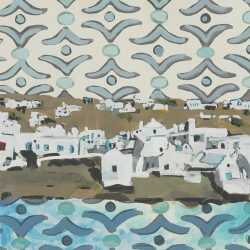
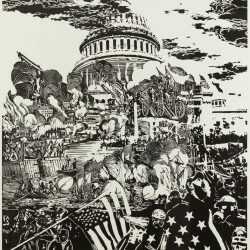
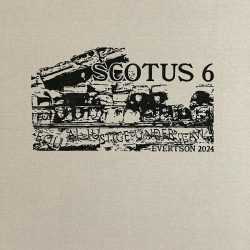
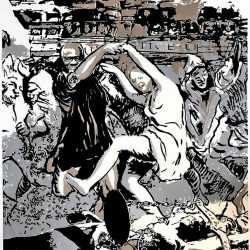
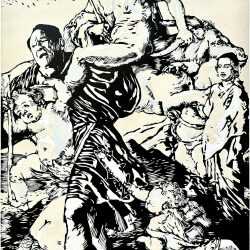
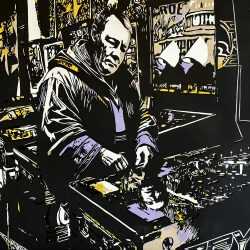
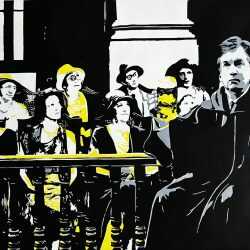
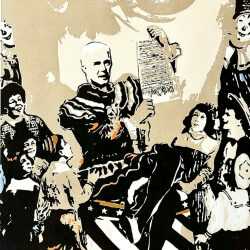
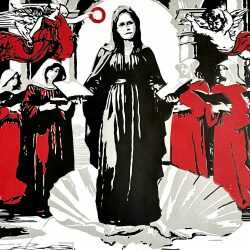
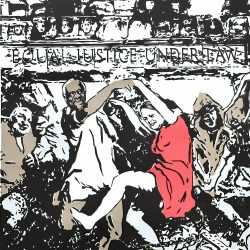
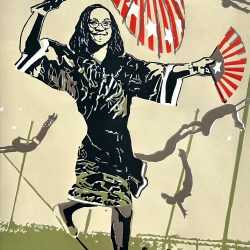
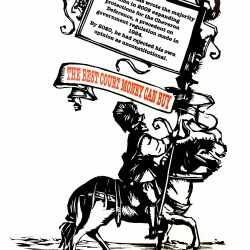
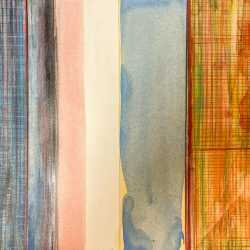
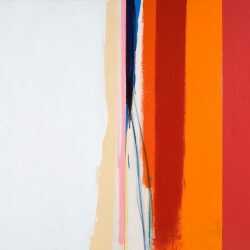
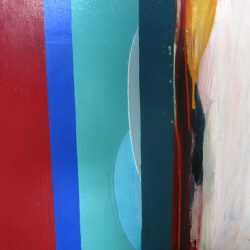
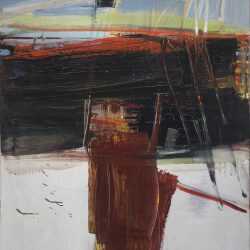
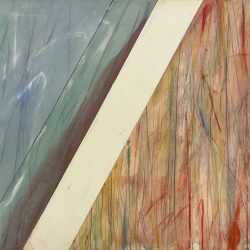
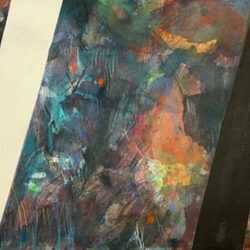
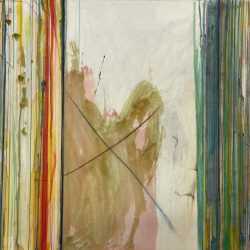
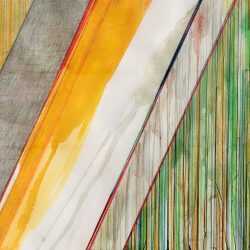
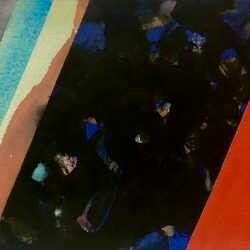
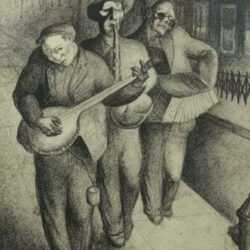
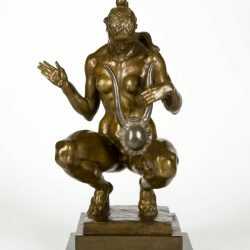
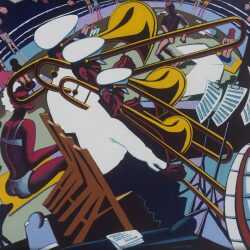

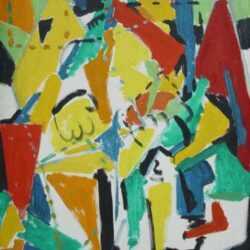
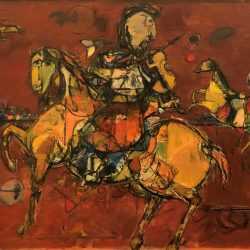
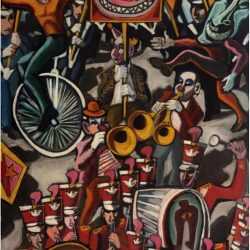
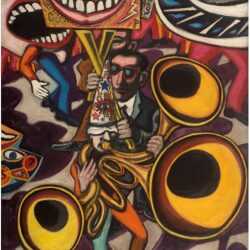
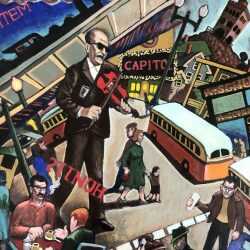
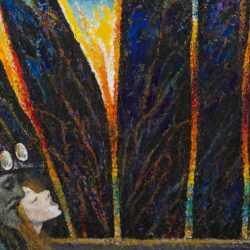
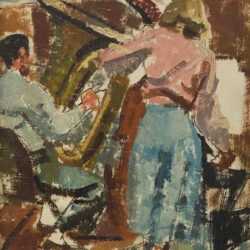
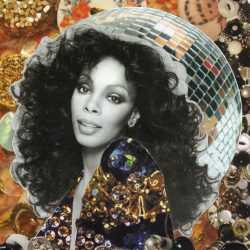
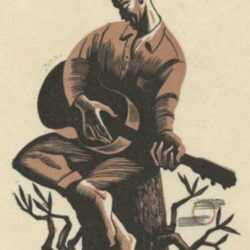
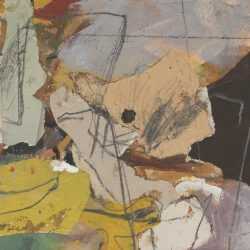

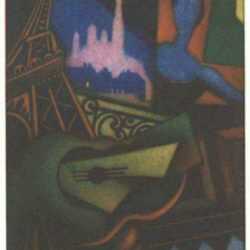
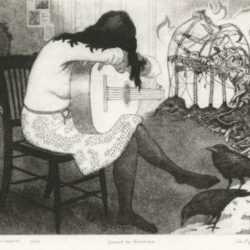
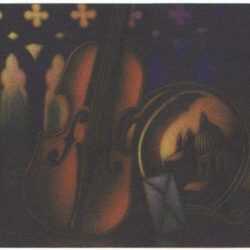
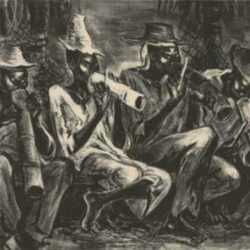
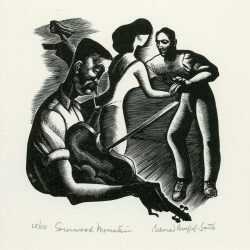
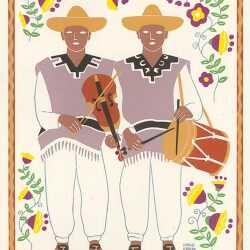
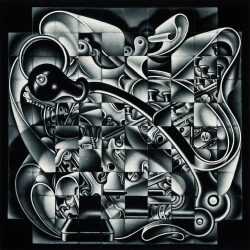
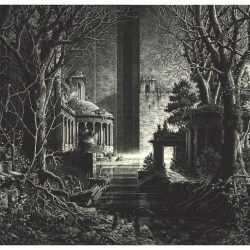
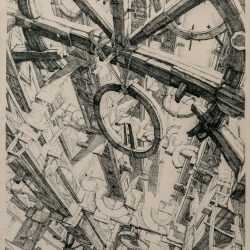
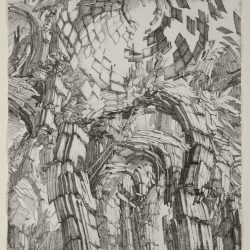
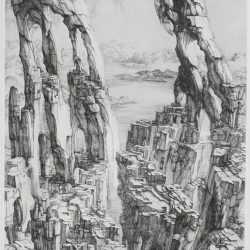
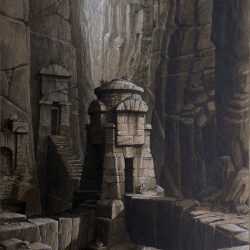
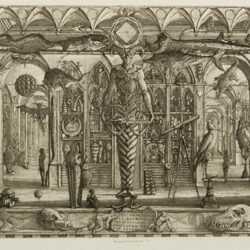
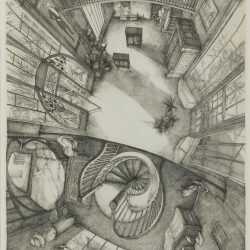
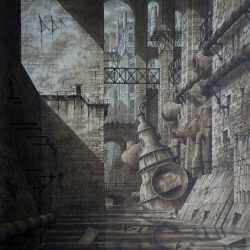
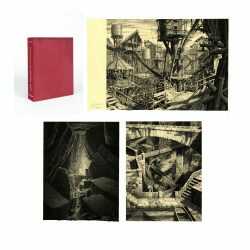
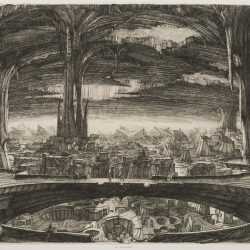
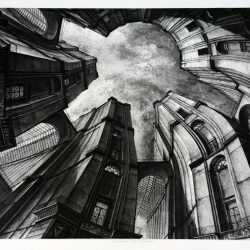
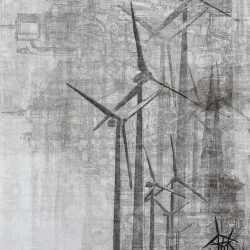
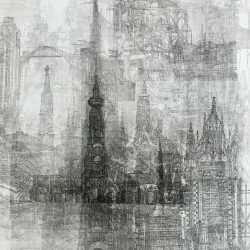
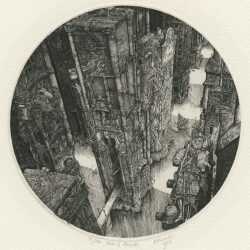
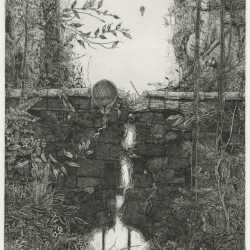
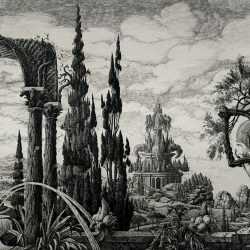
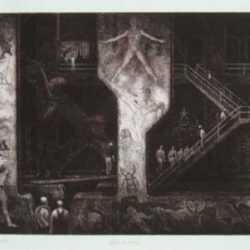
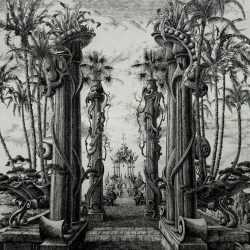
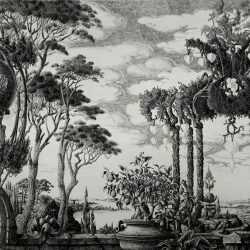
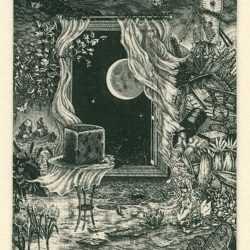
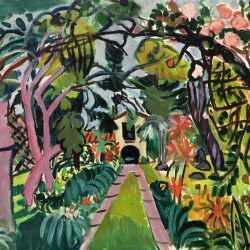
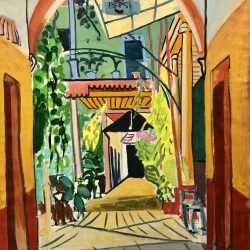
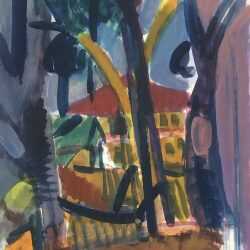
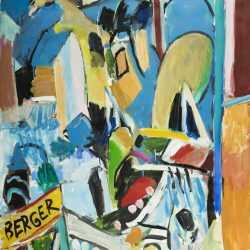
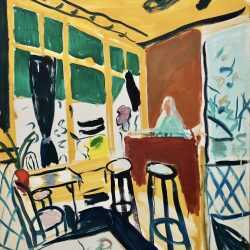
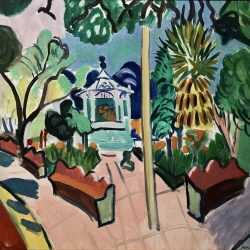
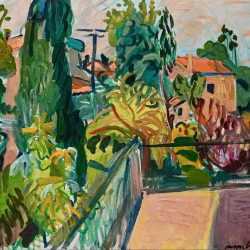
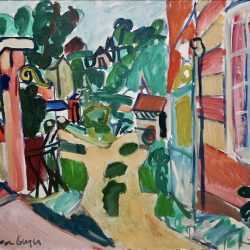
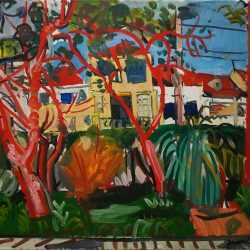
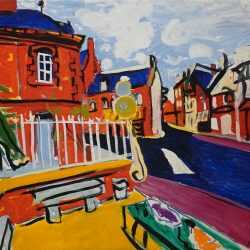
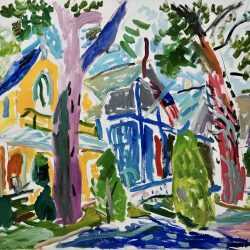
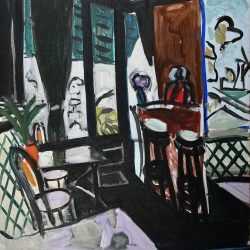
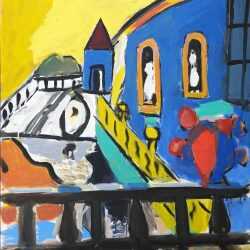
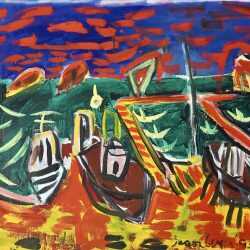
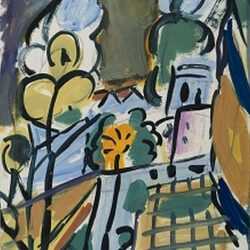
![Watercolor by Jason Berger: [Seated Woman], available at Childs Gallery, Boston](https://childsgallery.com/wp-content/uploads/jason-berger_seated-woman_23-08-359_childs_gallery_47513-250x250.jpg)
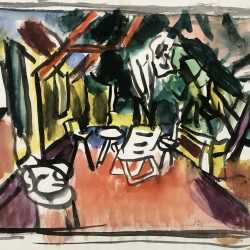
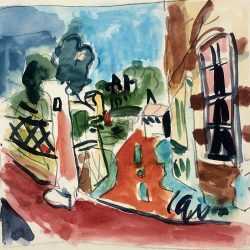
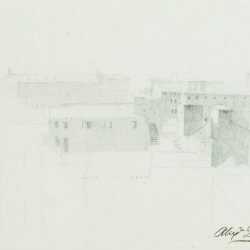
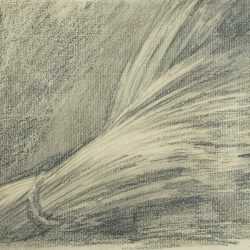
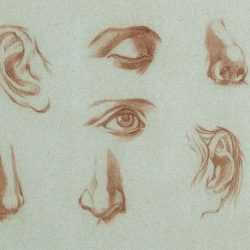
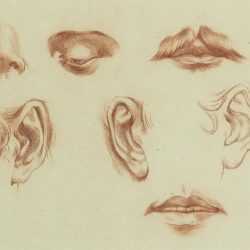
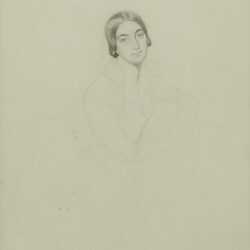
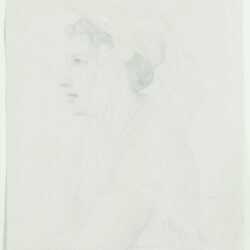
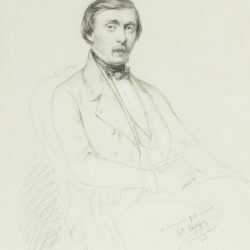
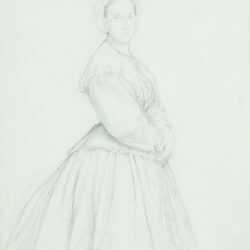
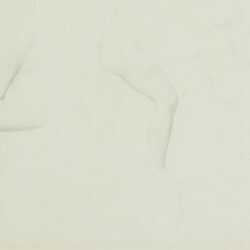
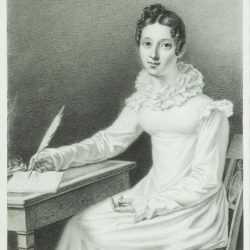
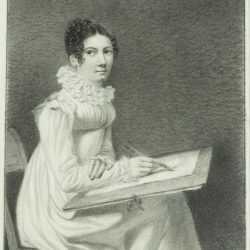
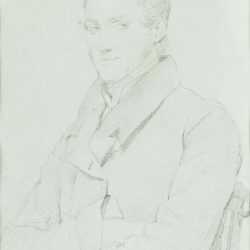
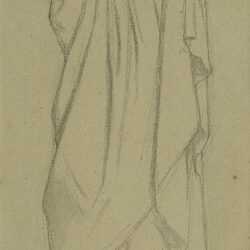
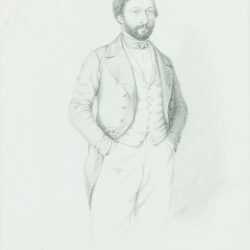
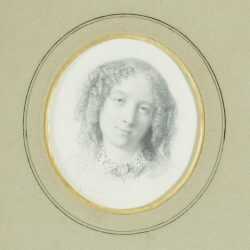
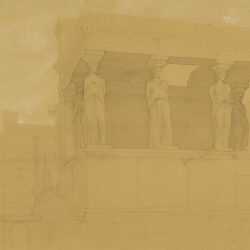
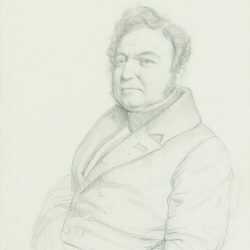
![Drawing by French School: [Reconstructed view of ancient seaport, probably Alexandria], represented by Childs Gallery](https://childsgallery.com/wp-content/uploads/french_school__reconstructed_view_of_ancient_cgl23236-3-46_childs_gallery-2-250x250.jpg)
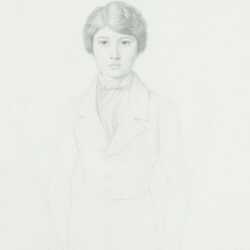
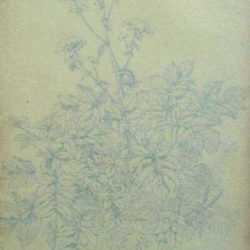
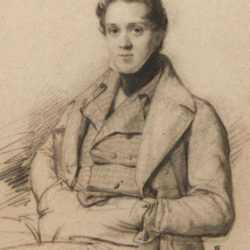
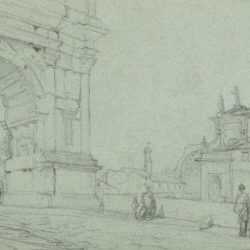
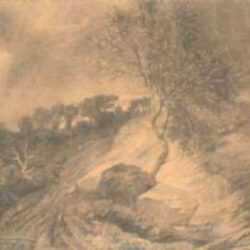
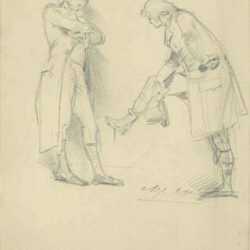
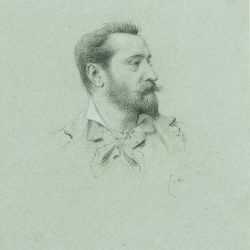
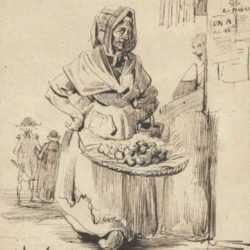
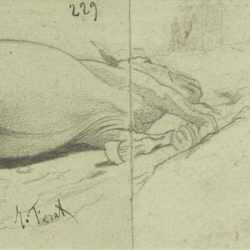
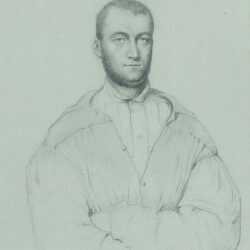
![Drawing by Circle of Jacques-Louis David: [Building in a Landscape], represented by Childs Gallery](https://childsgallery.com/wp-content/uploads/circle_of_jacques-louis_david_building_in_a_landscape__p1417-11_childs_gallery-1.jpg)
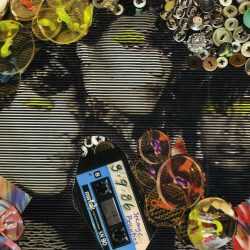

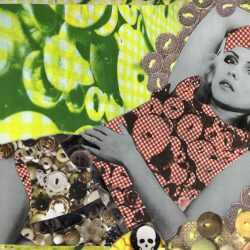
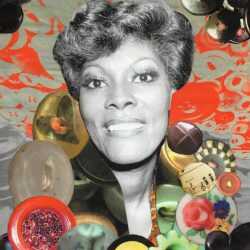
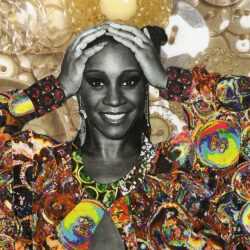
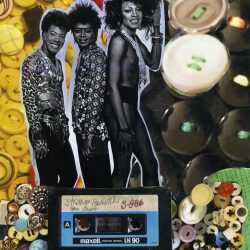
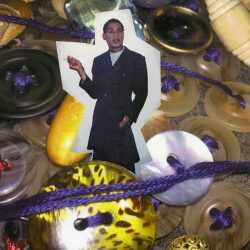
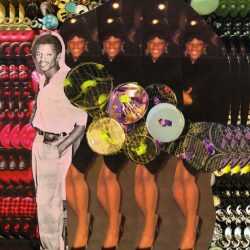
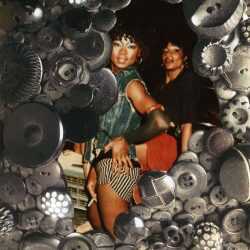
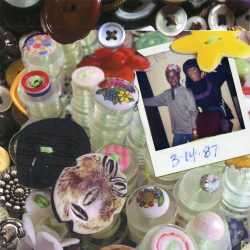
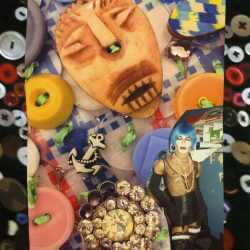
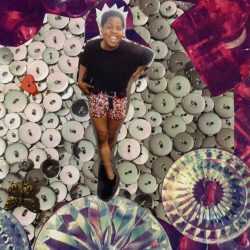
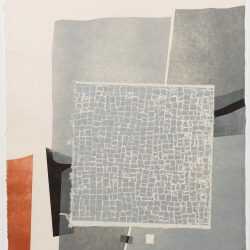
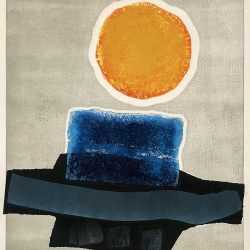
![Painting by Ruth Eckstein: Black Fields V [], available at Childs Gallery, Boston](https://childsgallery.com/wp-content/uploads/ruth-eckstein_black-fields-v-_16-16-168_childs_gallery_47293-250x250.jpg)
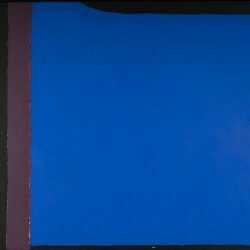
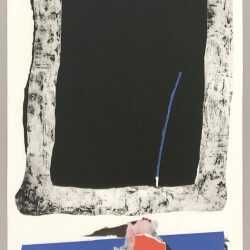
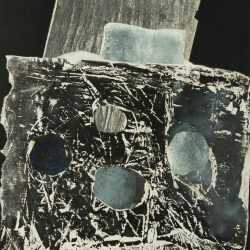
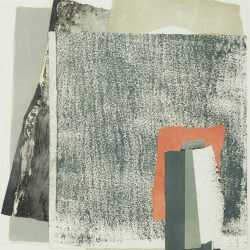
![Collage by Ruth Eckstein: [Abstract Composition in Rust Yellow and Blue], available at Childs Gallery, Boston](https://childsgallery.com/wp-content/uploads/ruth-eckstein_abstract-composition-in-rust-yellow-and-blue_16-16-15_childs_gallery_47261-250x250.jpg)
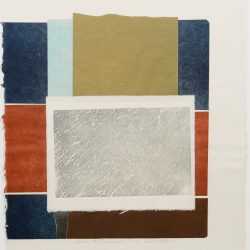
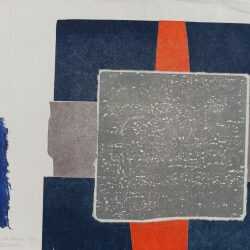
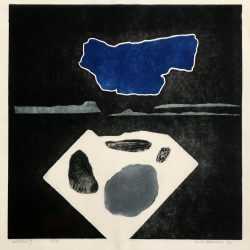
![Collage by Ruth Eckstein: [Small Collage 1], available at Childs Gallery, Boston](https://childsgallery.com/wp-content/uploads/ruth-eckstein_small-collage-1_1200_childs_gallery_47287-250x250.jpg)
![Collage by Ruth Eckstein: [Small Collage 2], available at Childs Gallery, Boston](https://childsgallery.com/wp-content/uploads/ruth-eckstein_small-collage-2_16-16-166_childs_gallery_47289-250x250.jpg)
